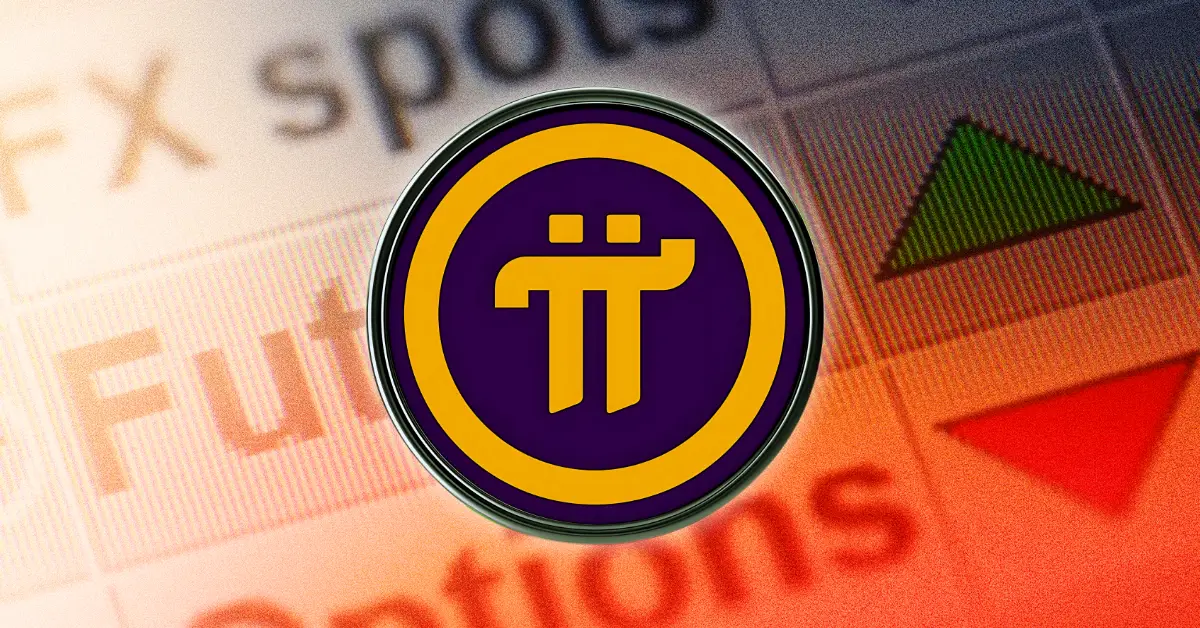
Pi Network is under pressure once again. In just 48 hours, its price dropped sharply by 18%, wiping out the recovery it made since March. This sudden fall has raised new concerns among investors, as the market momentum has turned bearish.
The Relative Strength Index (RSI) is still below the neutral 50 mark, showing weak buying interest and suggesting there could be more downside ahead. On top of that, the Bollinger Bands are tightening, a sign that price volatility may increase soon.
Currently, Pi Network is trading at $0.6085 and remains stuck under the key resistance level at $0.617. If selling pressure continues, it may become even harder to break above this point. The next major support level is at $0.519. If the price dips below $0.500, losses could deepen further and shake investor confidence.
Still, there’s a chance for a turnaround. If Pi manages to break past $0.617, it could break out of the current bearish trend and head towards $0.710. This move would help shift the momentum and give investors a reason to feel hopeful again.
Adding to the uncertainty, Pi Network is in the middle of unlocking a large number of tokens. On April 16 alone, 2.8 million PI tokens were released. This is part of a plan to unlock 108.9 million tokens throughout April.
Daily unlocks will continue, with around 5 to 6 million tokens being released each day. On April 20, 5.74 million tokens will be unlocked, followed by 5.14 million on April 21, and 5.91 million on April 22.
Looking further ahead, Pi is expected to unlock over 1.56 billion tokens over the next year, averaging 134 million tokens each month. The largest single unlock is scheduled for December 2027, when 432.3 million tokens will be released. If demand doesn’t keep up, this growing supply could push prices lower.
Despite the price drop, Pi Network is making moves to grow its presence in the United States. It recently became an affiliate member of Stanford and has entered the U.S. real estate market through Florida-based Zito Realty.
These developments have led to speculation that major financial players like JPMorgan and Bank of America might start paying attention. Some analysts even suggest that if top banks adopt Pi Network, the token’s price could rise as high as $30.
Pi Network is also becoming more active in the Web3 space. It has partnered with Banxa and integrated Chainlink Data Streams to improve its ecosystem. According to Dr. Altcoin, growing institutional interest could support the token’s price, but the network will still need important upgrades to attract big players.
He also notes that, in the short term, the price could fall to $0.30 or lower due to heavy selling and weak demand. However, he believes a recovery might begin by late August 2025, especially if the pace of token unlocks begins to slow down.
It’s not just the numbers that matter now – it’s how Pi handles the weight of growing expectations in an unforgiving market.
Ongoing token unlocks increase supply, which may lower Pi’s price if demand doesn’t keep up, with over 1.56 billion PI tokens set to be released.
If Pi Network reclaims the $0.617 level, it could shift to a bullish trend, with a potential breakout to $0.710, sparking a recovery.
Investors focusing on altcoins may find the next one to two months a promising window…
XRP holders are growing increasingly frustrated and confused over the U.S. Securities and Exchange Commission’s…
XRP is gaining momentum in the crypto market once again, and this time, it’s not…
When shoppers browse for something, they probably can't imagine owning a piece of the company…
Both Dogecoin and Shiba Inu are making headlines this week with significant whale activity and…
With Ethereum’s steady performance signaling renewed interest in the blockchain sector, attention is turning toward…